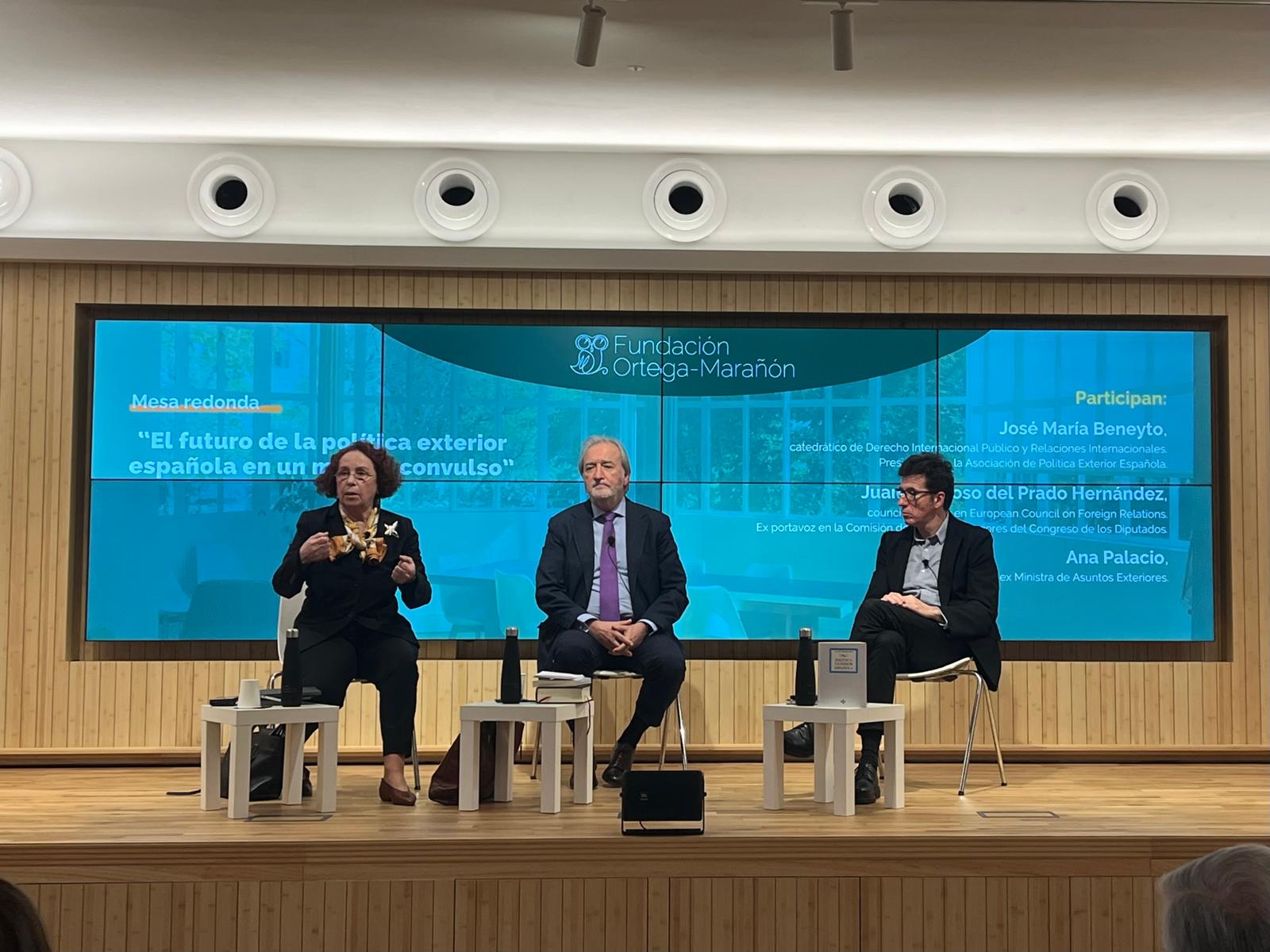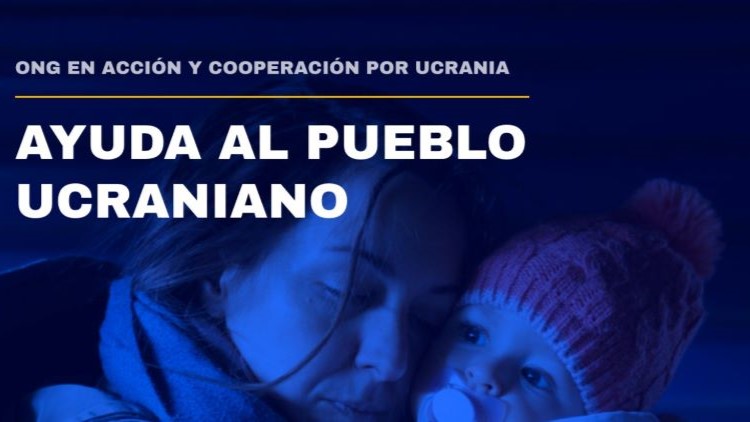Alba Córcoles
‘Peace is achieved through prosperity, and prosperity through exchange’. This was one of the key points highlighted by Ana Palacio, alluding to the strong diplomatic relations that Marca España maintains around the world, dictating the course of Spanish foreign policy.
Last week, the Gregorio-Marañón Foundation hosted the debate ‘The future of Spanish foreign policy in a convulsive world’, organised by the Spanish Foreign Policy Association (APEE), to analyse issues related to Spain’s foreign policy.
The same title was also the title of the recent publication by the speaker José María Beneyto, President of the APEE, which marked the table of contents of the presentation. Beneyto himself, Professor of International Public Law and International Relations; Ana Palacio, ex-Minister of Foreign Affairs; and Juan Moscoso del Prado, ex-Speaker of the Foreign Affairs Committee of the Spanish Congress of Deputies, took the floor.
‘Classical Spanish diplomacy has opened up to new spheres and actors, motivated by the impulses of globalisation and Europeanisation’, said the professor, opening the round table. ‘These new channels are public-private alliances, cultural and language diplomacy, the Casas Network and Marca España… it is no longer soft power, now it is smart power’. Anecdotally, he pointed out that ‘there are even cooks in the diplomatic corps representing “gatronomic diplomacy”’. With these techniques, Beneyto concluded that ‘Spain is beginning to play a key role in Europe, Latin America and the Mediterranean basin’.
Juan Moscoso del Prado stressed that, in this changing and convulsive world, ‘we have to understand where we come from in order to know where we are going’. He commented on the case of Latin America, ‘where our traditional mode of relations no longer works, and we should opt for a bilateral approach’. Another issue that also needs to be transposed to the Mediterranean, he suggested. To turn these political objectives into realities, the former spokesperson prescribed a clear position, financial instruments, knowledge and study. ‘We must show ourselves as a unit to transport our interests and values to the European Union, and find public-private partnerships to support them,’ he said, referring to business-friendly resolutions.
To these key ingredients, Palacio added continuity. ‘In diplomacy, it is about relationships over time, about continuity with consequence. Respect for form is essential, and small, misguided gestures can be harmful to interests. For the former minister, the foreign projection of Spanish policy is based on three vectors: ‘The European dimension, the Mediterranean Union and the overseas vocation’. Finally, she assured that ‘Spain’s reach in the world, largely thanks to new forms of diplomacy and the powerful Spain Brand, is much better than Spaniards think’, whom she described as ‘insecure abroad’.
‘The evolution of Spanish diplomacy is an achievement for our nation. We are lucky to have good Spanish representation that clearly reflects the ideas of what we are and what we want,’ Palacio concluded. ‘150 years ago, we were considered on the international scene as a “small Euro-African state”’. With hindsight, ‘we should be proud of its evolution’, he said.







